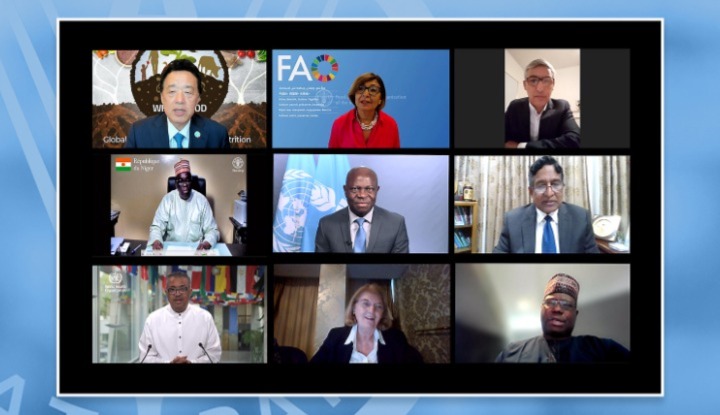‘Healthy soils can significantly contribute to ending hunger and create a healthy planet, but only if we address soil global threats, including nutrient imbalance.’
The Global Symposium on Soils for Nutrition was held, virtually, 26 to 29 July, its main objective being to review what is known on the role of soil fertility in delivering sufficient, high-quality, safe and nutritious food.
The event was organised by the Food and Agricultural Organisation of the United Nation’s Global Soil Partnership, the Intergovernmental Technical Panel on Soils, and the International Network on Fertiliser Analysis. Participants included scientists, industry, NGOs, civil society and local communities.
The Global Symposium on Soils for Nutrition identified knowledge gaps and provided a basis for discussion among a range of stakeholders.
Opening the Symposium; QU Dongyu, Director-General of the Food and Agricultural Organisation (FAO) highlighted a recent FAO report on the State of Food Security and Nutrition in the World which confirmed a significant rise in global food insecurity and malnutrition as a consequence of multiple drivers, including covid-19, climate change and ongoing conflicts. He also highlighted the rising cost of fuel, feed and fertiliser, along with problems such as land degradation, pollution and loss of biodiversity.
‘Healthy soils can significantly contribute to ending hunger and create a healthy planet, but only if we address soil global threats, including nutrient imbalance,’ QU said. ‘Unfortunately, loss of soil fertility means that many vegetables and fruits are not as rich in vitamins and nutrients as they were 70 years ago. Today two-thirds of the world’s population is at risk of nutrient deficiency,’ he added.
Taking steps to manage soil sustainability, QU summarised a number of initiatives which include the International Code of Conduct for the Sustainable Use and Management of Fertilisers, which he said: ‘Constitutes a transversal approach to a complex problem.’
‘We must use these tools and seek cross-cutting solutions that embrace nature-positive solutions, such as bio-fertilisers, increased soil organic matter and crop diversification. They should also optimise technological tools for more precise use of fertilisers, and promote the circular economy.’
Among the key note speakers at the Global Symposium was Grace Kangara, Soil Scientist in Climate and Nutrient Smart Agriculture at Rothamsted Research, UK who said: ‘Understanding the factors governing soil micronutrient supply, their exploitation, and a complementary suite of innovative agronomic biofortification technologies is key towards improved human and livestock nutrition, and conservation of the soil resource base.’

